You’re in a clothing store, and you’ve just found the perfect outfit. The salesperson approaches you and asks if you need help. You say no, thank you, and continue looking. A few minutes later, the salesperson comes back and asks again. This time, they stand a little closer to you and play some music. You can’t help but feel drawn in by the beat of the song, and before you know it, you’ve agreed to buy the outfit.
How did that salesperson persuade you to buy something? They used music to influence your decision-making process! In this article, we will discuss how music is used for persuasion and answer some common questions about this topic.
How Is Music Used To Persuade
Music is a powerful tool that can be used to influence our emotions and behavior. Researchers have found that music can be used to increase sales, persuade people to vote, and even make us more likely to comply with requests.
Priming is when we are exposed to certain stimuli (in this case, music) that affects our subsequent behavior. For example, if you hear a song with lyrics about love, you may be more likely to think about love later on.
Priming works because it activates certain concepts in our minds, which then affect our behavior. For example, if you hear a fast-paced song, it may prime the concept of speed, which could make you drive faster. Or if you hear a song with sad lyrics, it may prime the concept of sadness, which could make you cry.
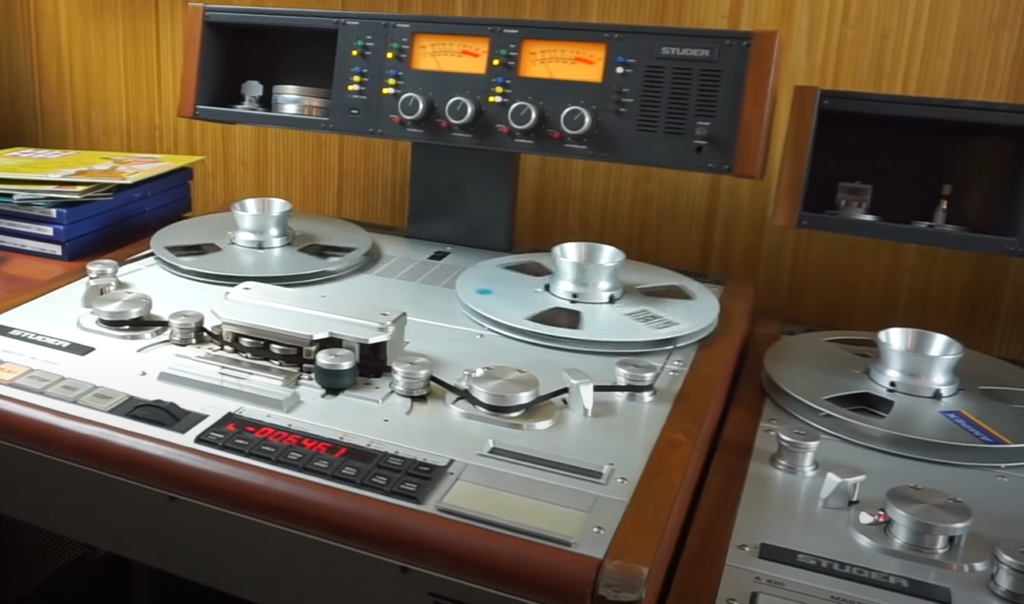
Music can also be used to influence our emotions. Certain songs can trigger happy or sad memories, which can then affect our current mood. Music can also be used to manipulate our emotional state by playing on our fears or desires. For example, horror movie trailers often use music to heighten the feeling of fear and suspense.
Finally, music can be used as a form of social control. This is because music has the ability to influence our behavior in groups. For example, when we are at a club or bar, the music may make us more likely to dance or drink. Or when we are at a sporting event, the music may make us more likely to cheer for our team.[2]
When is music in advertising persuasive?
Music in advertising is most persuasive when it is used to create an emotional connection with the viewer or listener. The right piece of music can evoke feelings of happiness, sadness, nostalgia, or even fear. And when those emotions are attached to a product or brand, they can be very powerful in influencing our purchasing decisions.[1]
There are a few different ways that music can be used to create an emotional connection:
- It can be used to trigger positive associations with a brand (e.g., using Upbeat Music to sell cars)
- It can be used to tap into existing emotional states (e.g., using Relaxing Music to sell products that promote relaxation)
- It can be used to generate new emotions (e.g., using Nostalgic Music to sell products that evoke feelings of nostalgia)
Of course, not all music is equally effective at creating an emotional connection. The best way to find the right piece of music for your ad is to work with a professional composer who understands how to craft melodies and harmonies that will create the desired effect.
How to pick persuasive music for advertising
When it comes to choosing music for ads, there are a few key things to keep in mind. First, you want to make sure the song is appropriate for the product or service being advertised. Second, you want to ensure the song will resonate with your target audience. And finally, you want to make sure the song is catchy and memorable.

Here are a few tips on how to pick persuasive music for advertising:
- Consider the overall tone of the ad. The music should complement the visuals and message of the ad.
- Think about what kind of emotions you want to evoke in your target audience. The right song can create an emotional connection with your audience that will make them more likely to remember your ad.
- Keep it simple. An overly complicated song can be distracting and take away from the overall message of your ad.
- Make sure the song is catchy and memorable. The last thing you want is for your ad to get lost in the shuffle because no one can remember the song.[1]
Tempo affects the persuasive power of music
The tempo of a piece of music can have a significant impact on how persuasive it is. Slower tempos are often used to create a sense of calm, while faster tempos can create a sense of excitement or urgency. The tempo that is most effective for persuasion will depend on the message that you are trying to communicate.[2]
Genre influences spending habits
Different genres of music have been found to influence spending habits. In one study, shoppers were exposed to different kinds of music while they browsed through a store. The results showed that classical music led to more expensive purchases than rock music, which led to cheaper purchases.
On the other hand, if you’re selling budget items, rock music could be a better choice.Of course, these findings are just from one study – so take them with a grain of salt.
The Potential of Music to Effect Social Change
While music has been used throughout history as a tool for persuasion, its potential to effect social change is often underestimated. Music can be used to raise awareness about important issues, to challenge existing power structures, and to promote positive social values.
Unfortunately, the persuasive power of music is often overlooked or taken for granted. This is especially true in our modern media-saturated world, where we are constantly bombarded with messages from all sides. It can be easy to become numb to the persuasion attempts of advertisers, politicians, and even our favorite musicians.
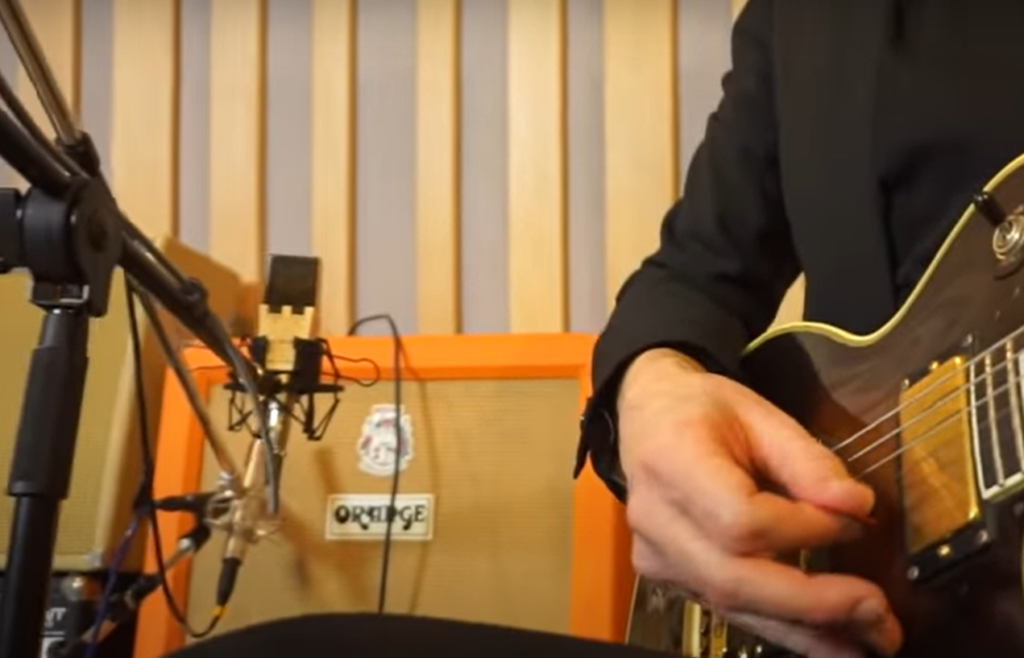
But if we take the time to think about it, we will realize that music does have the ability to influence our thoughts and behaviors. In some cases, it can even inspire us to take action.[1]
Here are a few examples of how music has been used to effect social change:
- In the 1960s, protest songs were popularized by artists like Bob Dylan and Joan Baez. These songs helped to raise awareness about important issues like civil rights and the Vietnam War.
- In 1992, N.W.A.’s album Straight Outta Compton was released. The album’s controversial lyrics challenged existing power structures and helped to spark a conversation about police brutality and racial injustice in America.
- In 2001, the song “Imagine” by John Lennon was re-released following the September 11th attacks. The song’s message of peace and unity resonated with people all over the world and helped to promote a sense of hope during a time of great tragedy.
How does music influence the audience?
Music is commonly used in advertising to influence the emotions of the audience. It can make people feel happy, sad, nostalgic, or even scared. Because of this, music is a powerful tool that can be used to persuade people.
There are a few different ways that music can influence the audience. The first way is through its ability to create an emotional response. Music has the ability to trigger memories and emotions in people. This makes it a powerful tool that can be used to manipulate the emotions of the audience.
The second way that music can influence the audience is by creating a sense of trust or rapport with the brand. If a brand uses music that is familiar to the audience, it will create a sense of trust and rapport. This is because the audience will feel like the brand understands them and their taste in music.

The third way that music can influence the audience is through its ability to create a sense of urgency. If a brand uses fast-paced music, it will create a sense of urgency in the audience. This is because the audience will feel like they need to act now before it’s too late.[1]
The Power of Persuasion: How Music Influences Behavior
Music is a potent tool for persuasion. Here’s a comparison of how music can influence behavior, including its psychological impact, examples of its use, and ethical considerations.
| Psychological Impact | Examples | Ethical Considerations |
|---|---|---|
| Emotional Connection | Using emotionally charged music in advertisements to create a connection between the product and the viewer’s feelings. | Ensuring that the emotional manipulation is not misleading or exploitative. |
| Mood Enhancement | Playing upbeat music in retail stores to improve shoppers’ moods and encourage spending. | Respecting individual preferences and avoiding excessive volume. |
| Memory Enhancement | Using jingles or catchy tunes in commercials to enhance brand recall. | Avoiding subliminal messaging or deceptive practices. |
| Social Influence | Using anthems and music in political campaigns to unite supporters and convey a sense of community. | Respecting copyright and licensing regulations. |
| Behavioral Conditioning | Employing music in casinos to influence gambling behavior and encourage longer stays. | Ensuring transparency and responsible marketing in such settings. |
Explanation of the Table:
- Psychological Impact: Discusses the psychological effects of music on behavior.
- Examples: Provides real-world examples of how music is used to persuade.
- Ethical Considerations: Highlights the importance of ethical practices when using music for persuasion.
Music has a remarkable ability to influence behavior:
Emotional Connection: By using emotionally charged music, advertisers can forge a deep connection between the viewer and their product, but this must be done ethically and without manipulation.
Mood Enhancement: Playing upbeat music in retail stores can elevate shoppers’ moods, leading to increased spending, as long as individual preferences are respected.
Memory Enhancement: Jingles and catchy tunes in commercials boost brand recall, but advertisers should avoid deceptive practices.
Social Influence: Political campaigns use anthems and music to unite supporters, but it’s crucial to respect copyright and licensing regulations.
Behavioral Conditioning: Casinos employ music to influence gambling behavior, but transparency and responsible marketing are essential in such settings.
Understanding the psychological impact of music, along with ethical considerations, empowers individuals and organizations to use music effectively and responsibly in persuasion.
FAQ
How does music convey meaning?
Music is a powerful tool that can be used to convey meaning and emotion. The use of music in persuasion is not new; it has been used for centuries to influence people’s emotions, thoughts, and behaviors. Music can be used to make people feel happy, sad, anxious, or even angry.
Certain songs or genres of music can trigger certain emotions in people. For example, fast-paced rock music may make some people feel more energized and aggressive, while slow, soothing music may help others relax. The lyrics of a song can also influence the way people feel. For example, a love song may make someone feel happy and romantic, while a song about heartbreak may make someone feel sad and depressed.
How does music affect decision making?
Music has the ability to affect our emotions, and as a result, can influence our decision making. Numerous studies have shown that music can cause people to make riskier or more conservative choices, depending on the type of music that is played.
Some researchers believe that this effect is due to the fact that music activates the limbic system, which is responsible for processing emotion. When the limbic system is stimulated, it can lead to changes in heart rate, blood pressure, and respiration. These changes can then influence our decision making.
Other researchers believe that music affects decision making by providing a distraction from other stimuli. This distraction can lead us to focus more on our gut feelings and intuition when making decisions, rather than logic and reason.
Regardless of the exact mechanism, there is evidence that music can influence our decisions in a variety of ways. So, if you’re looking to persuade someone of something, it might be worth considering what type of music you play in the background!
How can music express emotions?
Music has the ability to express a wide range of emotions. While each person may respond to different types of music in different ways, there are some general emotional responses that are commonly elicited by certain musical elements. For example, fast tempos and loud volumes tend to create feelings of excitement, while slow tempos and soft volumes often create feelings of calmness. The use of major chords tends to create happy or triumphant emotions, while minor chords often create sad or somber emotions.
Why is music so powerful?
There’s no single answer to this question – music is powerful because it is emotional, because it is personal, and because it can be used to tap into our memories and experiences. Music has the ability to make us feel happy, sad, anxious, or even angry. And when used skillfully, music can be a very effective tool for persuasion.
One of the most common ways that music is used to persuade is through the use of advertising. Advertisers often use music to create an emotional connection with their audience and to influence purchase decisions. For example, you’ve probably heard a lot of upbeat music in ads for vacation destinations or products aimed at children. The goal here is to create a positive association between the product and the feelings evoked by the music.
What are the main purposes of music?
Most people would say that the main purpose of music is to entertain.
Music can also be used for purposes such as persuasion and manipulation.
Can music influence consumer behavior and purchasing decisions?
Yes, music can influence consumer behavior by creating a specific atmosphere in stores, restaurants, or advertisements, which can affect the choices people make while shopping or dining.
How is music used in political campaigns to persuade voters?
Music is often used in political campaigns to convey emotions and messages. Campaign songs and musical events can help create a sense of unity and connect with voters on a personal level.
What role does music play in movie soundtracks to persuade viewers?
Music in film is crucial for setting the mood, enhancing emotions, and guiding the audience’s interpretation of scenes. It persuades viewers by immersing them in the story and characters’ experiences.
Can music be used to persuade people to adopt certain beliefs or ideologies?
Yes, music can be a powerful tool for promoting ideologies or beliefs. Songs with persuasive lyrics and catchy melodies can shape and reinforce people’s values and opinions.
How is music utilized in advertising to persuade consumers?
Music is often used in advertising to create an emotional connection with the audience. The choice of music can influence how consumers perceive products or brands and encourage them to take action.
Does music play a role in persuading people to attend events or gatherings?
Absolutely, event organizers use music to persuade people to attend by selecting performers or genres that appeal to the target audience, creating anticipation and excitement.
Can music be employed to persuade individuals to support charitable causes?
Yes, music can be a powerful tool in charitable campaigns. Benefit concerts, charity singles, and emotionally charged music can encourage people to donate or support various causes.
How does music influence the perception of political speeches and rallies?
The choice of music at political events can influence the perception of speeches and rallies. It can create a sense of unity, patriotism, or excitement, impacting how the audience receives the message.
Are there ethical considerations when using music for persuasion purposes?
Ethical considerations include respecting copyright laws, avoiding manipulative tactics, and ensuring that the music aligns with the intended message without misleading or exploiting the audience.
Can music persuade individuals to change their behavior or habits?
Music can be used in behavior change campaigns, such as anti-smoking or environmental initiatives, to inspire individuals to adopt healthier or more sustainable habits.
Useful Video: The music of innovation | Pelkins Ajanoh | TEDxMIT
Conclusion
Music has the ability to change our moods and emotions, making it a powerful tool that can be used for persuasion. By understanding how music affects us, we can better harness its power to influence others.
If you’re interested in using music to persuade, keep these tips in mind:
- Choose songs that evoke the desired emotion in your listener
- Be aware of how the tempo of a song can affect its emotional impact
- Think about how lyrics can influence someone’s thoughts and feelings
- Pay attention to volume levels and other sonic elements when choosing or creating persuasive music
With careful consideration, you can use music to achieve all kinds of goals – from increasing sales at your store to winning over that special someone.
References:
- https://musicformakers.com/music-in-advertising/#
- https://marketbusinessnews.com/how-is-music-used-to-effectively-persuade-in-advertising/305029/

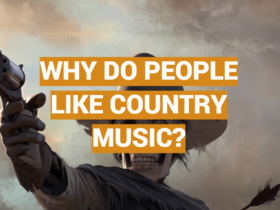


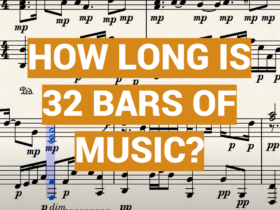
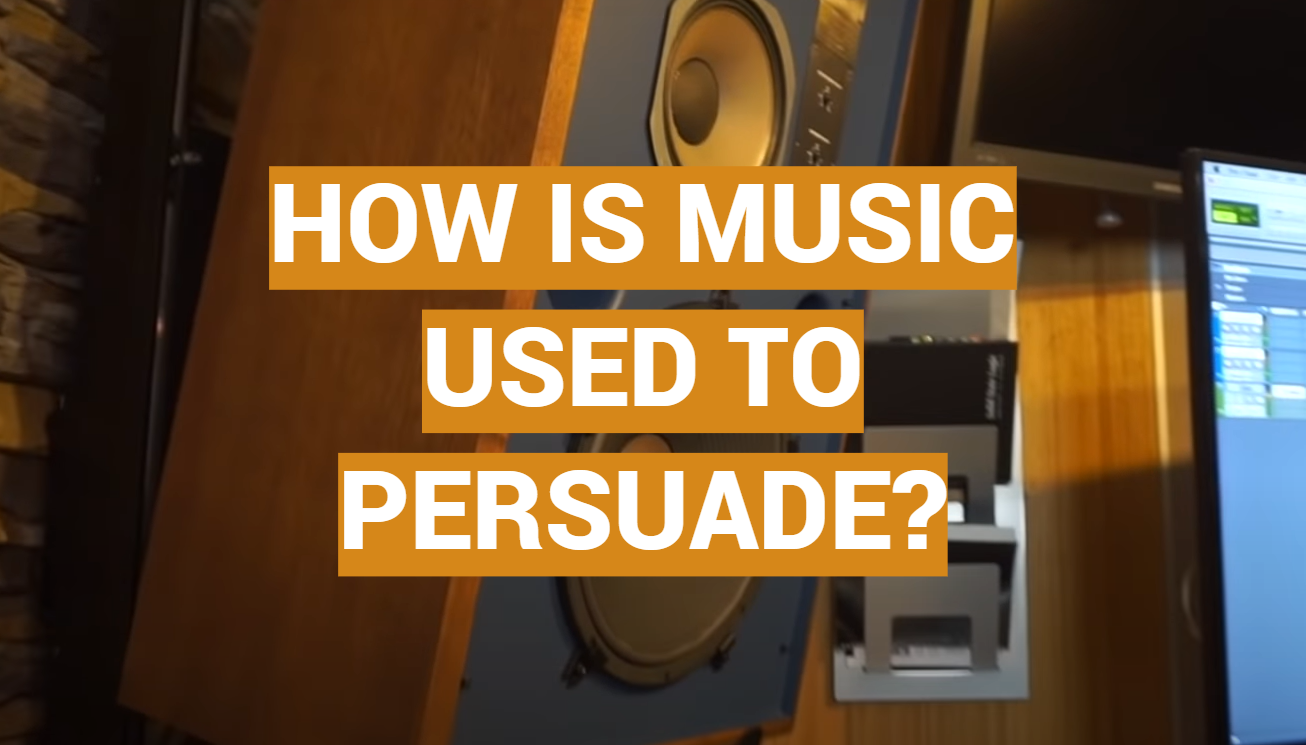


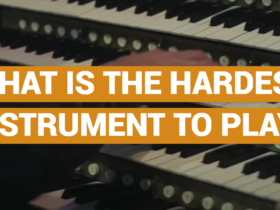

Music’s persuasive power in shaping emotions and opinions has been a fascinating aspect of my personal and professional life. In advertising, I’ve witnessed firsthand how a catchy jingle or a carefully chosen soundtrack can turn a simple commercial into a memorable experience. The rhythm, tempo, and melody work together to create an emotional connection, influencing the way we perceive a product or message. It’s incredible how a well-crafted musical element can leave a lasting impression, subtly guiding our thoughts and feelings.
As a student, I’ve noticed the persuasive impact of music in educational settings. Whether it’s a historical documentary with a poignant score or a lively educational song, music has the ability to enhance the learning experience. It not only captures attention but also aids in information retention. Personally, I find that certain tunes can make complex subjects more approachable, serving as mnemonic devices that help me remember key concepts. It’s a testament to music’s persuasive role in shaping our cognitive processes.
In my experience as a social activist, I’ve seen the profound influence of music in conveying messages of unity and change. Protest songs, in particular, have a unique ability to galvanize movements and inspire collective action. The combination of powerful lyrics and stirring melodies creates an emotional resonance that transcends barriers. Music becomes a persuasive force for social change, rallying individuals around shared values and igniting a passion for justice.
Working in the entertainment industry, I’ve witnessed music’s role in shaping narrative and emotional arcs in films and television. A well-placed soundtrack can amplify the impact of a scene, evoking specific emotions and guiding the audience’s interpretation. Whether it’s a suspenseful moment underscored by tense music or a heartwarming scene enhanced by a melodic theme, music becomes a silent persuader, subtly influencing our connection to the storyline.
Exploring the realm of political campaigns, I’ve observed the strategic use of music to convey messages and evoke a desired emotional response. Campaign rallies often feature carefully selected songs that align with the candidate’s image and values. These musical choices aim to create an atmosphere of enthusiasm and unity among supporters. It’s intriguing to see how a well-curated playlist becomes a persuasive tool, helping to shape the public’s perception of a political figure and their platform.
The influence of music as a persuasive tool is undeniable, and in my experience as a marketing professional, I’ve seen how it plays a crucial role in brand positioning. Whether it’s a commercial for a luxury product or a budget-friendly item, the choice of music sets the tone and shapes consumer perception. The harmonies and rhythms work in harmony to evoke specific emotions, creating a subconscious connection between the audience and the brand. It’s fascinating how a carefully curated soundtrack can transform a product into an experience, making it more appealing and memorable.
As a therapist, I’ve integrated music into my practice to enhance emotional expression and communication. The persuasive nature of music becomes evident as clients use it as a medium to convey thoughts and feelings that may be challenging to articulate verbally. Certain melodies can evoke memories, trigger introspection, and facilitate healing. Witnessing the transformative power of music in therapy highlights its persuasive ability to facilitate self-discovery and emotional release.
In the realm of online content creation, I’ve experienced firsthand the impact of music on audience engagement. Whether producing videos for educational purposes or entertainment, the right background music can captivate viewers and keep them invested in the content. It serves as an emotional cue, guiding the audience through different moods and enhancing the overall viewing experience. The persuasive role of music in holding attention and influencing viewer perception is a crucial aspect of digital storytelling.
Having attended live concerts and performances, I’ve recognized how music becomes a persuasive force in creating a sense of community and shared experience. The collective energy generated by a live audience, coupled with the artist’s performance, forges a powerful connection. Concerts have the ability to unite diverse individuals under the spell of a shared musical journey, showcasing how music persuades by fostering a sense of belonging and shared emotion.